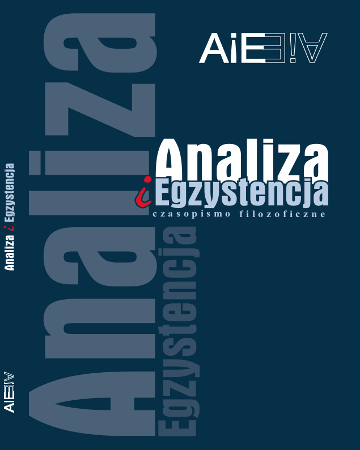Wittgenstein i zagadka Anzelma
Wittgenstein and Anselm’s Paradox
Author(s): Jakub Gomułka Subject(s): Philosophy, History of Philosophy
Published by: Wydawnictwo Naukowe Uniwersytetu Szczecińskiego
Keywords: Ludwig Wittgenstein; Anselm; Cora Diamond; God; paradox; atheism
Summary/Abstract: The paper is devoted to the problem of the two paradoxes: the paradox of absolutevalue in Wittgenstein’s Lecture on Ethics and the paradox of Anselm’s Name of Godfrom the Proslogion. I try to present semantic determinants of the paradoxes as wellas similarities of their structures. However, the main part of the article focuses on thesolution of Anselm’s paradox given by Cora Diamond, the prominent Wittgensteinianscholar in her paper Riddles and Anselm’s Riddle. Diamond develops extensivecomparison of the concept of that than which nothing greater can be conceived anda series of peculiar riddles – she calls the Anselm’s concept the great riddle, since, asin other riddles presented, we cannot deal with it in a usual way. The author showsthat what enables us to resolve, say, the riddle of Sphinx, is our obtaining a new wayof understanding the words which compose the riddle itself, for the old way will notlead us to the proper answer. However, when it comes to the great riddle we knowthat we cannot obtain any way of understanding which will enable us to conceiveit. This does not mean that the riddle cannot make any sense for us. We can believethat there is a solution (in fact, we have the solution – it has been given to us inthe Revelation – but we cannot understand it) so we can treat the great riddle as aneuqation which we lack proof but we know there is one. As Diamond calls it, wehave the promissory meaning of the riddle. In my opinion the idea of the promissorymeaning is an interesting solution of Anselm’s paradox, but I notice that the ideaitself is conditioned by religious faith or by something I call the empathic atheism(in short: an attitude which lets atheists take the believers’ point of view).
Journal: Analiza i Egzystencja: czasopismo filozoficzne
- Issue Year: 2013
- Issue No: 23
- Page Range: 71-98
- Page Count: 28
- Language: Polish

